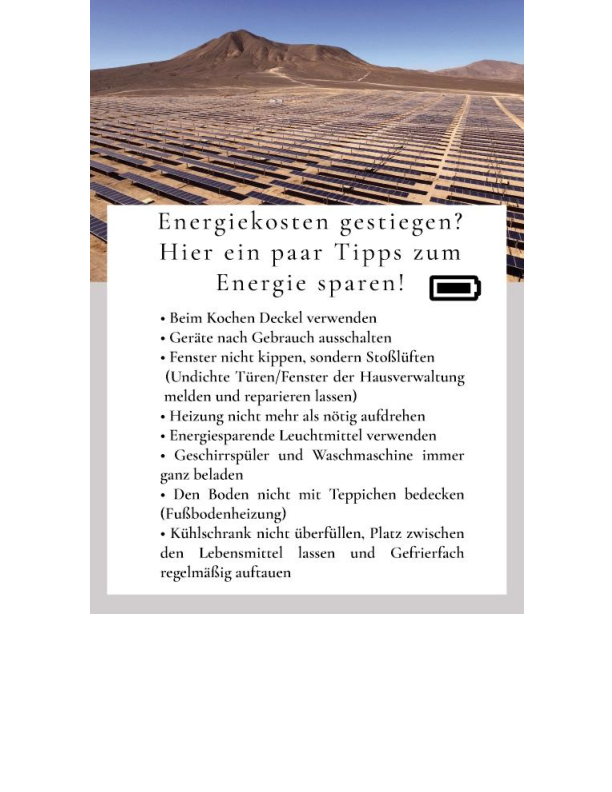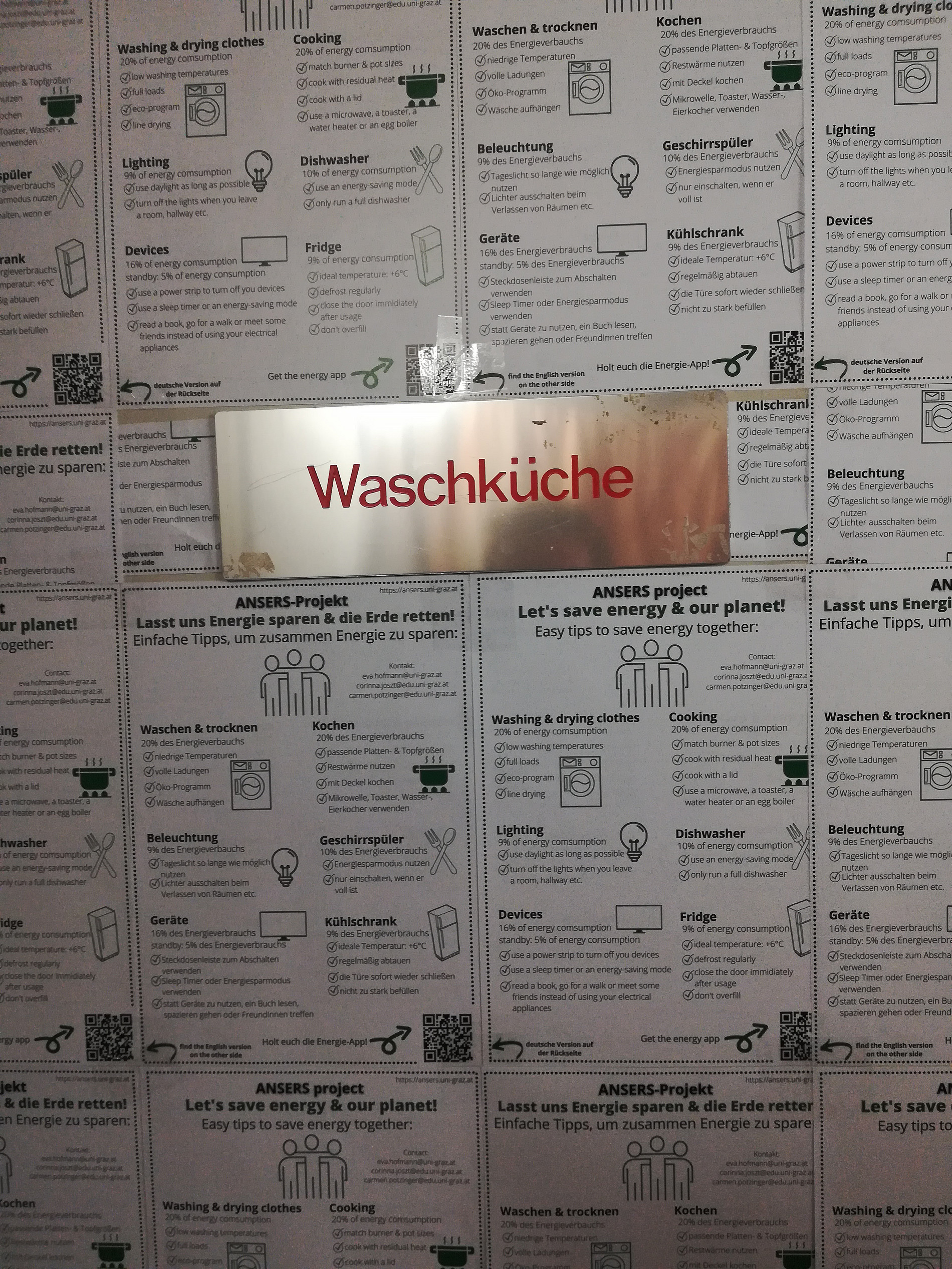ANSERS
Active user participation for smart energy services
The energy revolution is of central importance for society. To achieve a significant change, rate of renewable energies must be increased, synergies between sectors used and energy consumption reduced. Users play a decisive role in all three aspects. Active participation of users can increase the efficiency of the systems, reduce energy consumption and make the overall system more flexible. In addition, the participation of users and the associated generation of data is an opportunity for new, innovative energy services. The ANSERS project investigates the potentials and possibilities of active user participation in intelligent energy systems. Newly developed energy services are tested and evaluated in the district Smart City Graz.
In the ANSERS project, we combine psychological insights into user activation and user participation with software technologies. This interaction is of central importance for future intelligent energy systems, which promote the reduction of energy consumption and enable energy services such as demand response, peer-2-peer trading or the optimal regulation of interlinked energy systems. For this purpose, we develop and test the energy services “Quantification of flexible loads for demand response applications”, “Regulation of indoor and outdoor cooling” and “Prediction of energy consumption and quantification of potential savings”. We investigate which psychological factors determine whether and to what extent users interact with energy services, provide data and react to feedback from the system. Based on knowledge regarding these psychological determinants, the user interface is enriched with suitable gamification elements to activate the users and, in addition, accompanying measures are designed that are not directly integrated in the mobile application.
In a study by the ANSERS project, several determinants of participation in the energy system and the reduction in energy consumption (research model based on Fritsche et al., 2018) are examined: (1) assessment of climate change, (2) negative emotions in the in-group with regard to climate change , (3) Identification with the in-group, (4) norms and goals for reducing energy consumption in the in-group, (5) effectiveness in reducing energy consumption in the in-group, (6) positive emotions towards the in-group. In addition to reviewing the research model, changes in participation and (intended) energy consumption based on an intervention (workshop to strengthen the sense of community) are researched in a field experiment. From October to December 2021, people from 13 student dormitories and two residential complexes in Graz took part in the study and filled out a total of three questionnaires, indicated their electricity consumption for the coming day in the ANSERS app (participation), which was created at TU Graz, and partly took part in a workshop. In general, the results of the study show that a sense of community in the fight against the climate crisis can evoke a greater willingness to reduce energy consumption. The activities that were developed by the workshop participants to motivate people from the ingroup to save energy led to active engagement with energy saving. These results show that energy saving has to be tackled by each individual, but that energy saving is undertaken more motivated in the community (the in-group).
Selected activities of the workshop participants to motivate members of the in-group to save energy: distribution of flyers, to-do lists, art installation in the laundry room, lantern hike, energy-saving quiz.
Principal Investigator Univ.-Prof. Dipl.-Psych. Dr. Katja Corcoran
Deputy Principal Investigator PD Mag. Dr. PhD Gerald Schweiger, MA MA
Project Team at the University of Graz.
Project Team at the Technical University of Graz.
Dipl.-Ing. Thomas Schranz, BSc.
Cooperation Partners.
DI Kai-Uwe Hoffer, Stadtbaudirektion der Stadt Graz
DI Oliver Vallant, Insula GmbH , Bravestone Information-Technologie GmbH
DI Ernst Rainer, Büro für resiliente Raum- und Stadtentwicklung
Several student residences in Graz, among others …
Home4Students Leechgasse
Quartier Leech (Katholische Hochschulgemeinschaft graz)
Studierendenhaus des Landes Steiermark Graz Ries
WIST Moserhofgasse 20/22
WST Moserhofgasse 34
WIST Moserhofgasse 36

